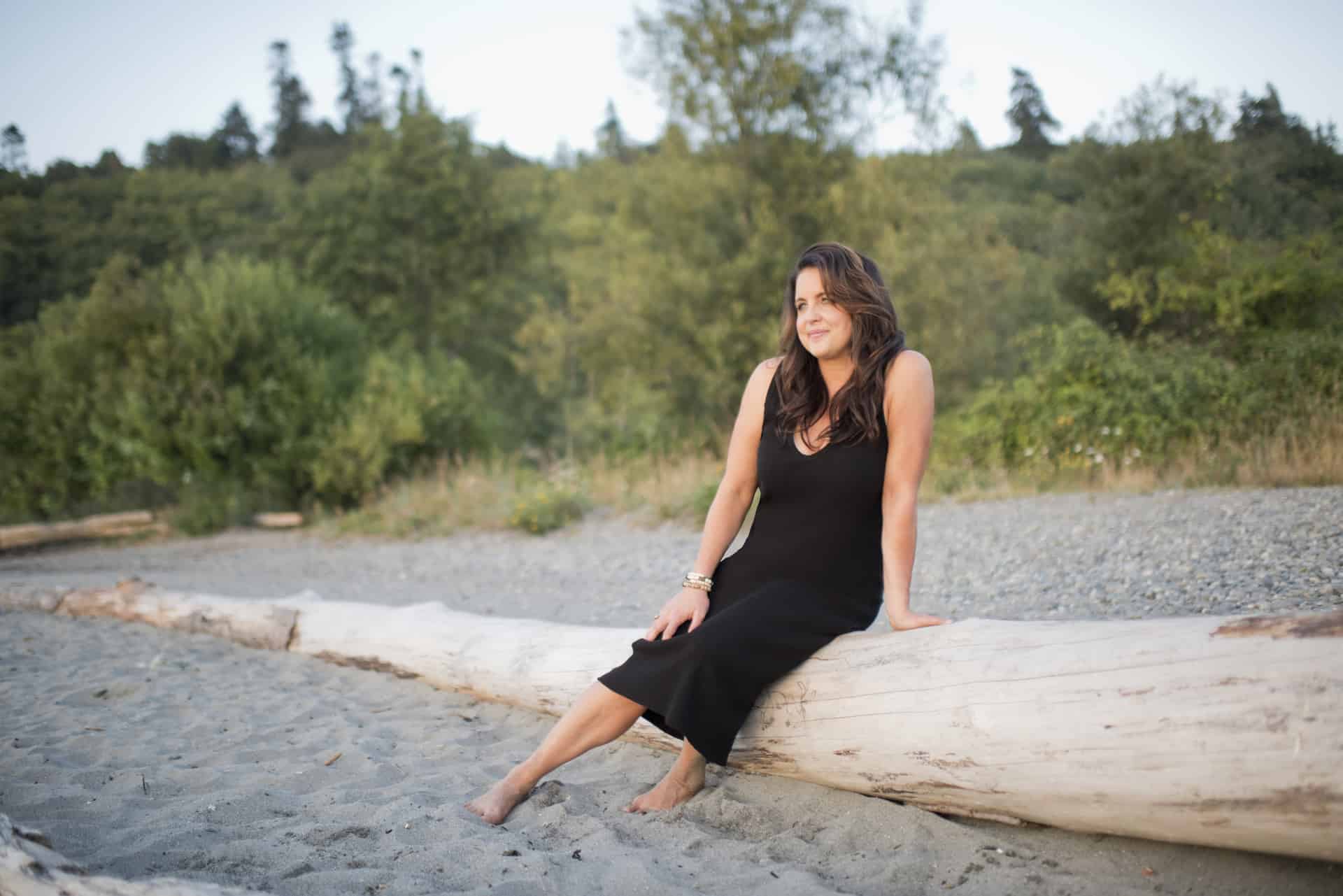
Tell Me—Are You Really Showing Up for Yourself?
Recently, I found myself in the kind of situation that has always been painful for me. I had been preparing for a huge event for several months, and every single person who meant something to me knew about it. They knew all about my passion, as well as the blood, sweat, and tears that had gone into my efforts. More than anything, they knew that these efforts were all about building sisterhood and community—and community means nothing if it is not backed up by support. For me, support isn’t simply sentiments of affirmation, but rather, tangible actions centered around showing up.
So when a few people I’d been counting on ended up being no-shows, I was, admittedly, triggered. How could they possibly pretend to offer support if they weren’t even present when it mattered the most?
And then, I had to turn that question back on myself, as I truly believe that our external circumstances mirror things within ourselves that we are not always conscious of.
If people weren’t showing up for me, how was this an indication of the ways that I was failing to show up for myself and others?
I’ve always believed in the power of sisterhood and reciprocity, but lately, my emphasis on external connection has shifted to an awareness of an internal pattern that plays out within me and impacts all my relationships. This pattern is all about the big and little ways I compromise my integrity and fail to show up for myself. It’s in the intuitive hits that get pushed to the wayside. It’s in the ways that I ignore my own well-being in order to cater to other people. It’s in the many methods of self-abandonment that I resort to when being with myself is really freaking hard.
If I had to be perfectly honest, there were countless ways I hadn’t been showing up for myself, even in the midst of this incredibly important event that had taken all my time and energy to plan.
The revelation was stunning, and while it didn’t alleviate my disappointment in the fact that several people hadn’t supported me in one of the most important events in my life, it helped me bring my focus back to myself.
Truly, how could I expect others to show up for me if there were ways I wasn’t even showing up for myself?
I began with an inventory of what “showing up” looks like for me. I thought about the values that matter most in close friendships: reciprocity, care, radical vulnerability and honesty, transparency about expectations, and a commitment to growth (both my own and the other person’s).
I realized that showing up for yourself is about cultivating the most important friendship you’ll ever have—the one with your number one.
We all have a sense of what true friendship it, but it can be trickier to point out what it isn’t. That’s why I decided to identify some of the tricky behaviors a person can engage in when they choose not to show up for themselves.
1. You self-sabotage: What is self-sabotage when it comes down to it? It’s the experience of being incongruent with ourselves; that is, it occurs when our so-called values conflict with our actions in the world. In essence, our subconscious mind is out of sync with our conscious behavior.
- This can look like everything from making excuses for yourself and bailing on the things and people that matter most to you, to spinning in stories and limiting beliefs that ultimately do not serve you. Self-sabotage can be one of the most difficult things to identify because it’s usually wrapped up in the lies we tell ourselves in order to justify toxic behavior.
- Ultimately, self-sabotage prevents us from experiencing what we most want in life. And it can run deep, which is why we must identify root causes and engage in honest self-reflection about it. In order to do this, we have to become uncomfortably honest with ourselves and take a complete inventory of the actions, beliefs, and behaviors that are not serving us. More than anything, we need to acknowledge our own agency in perpetuating these attitudes, as well as our ability to make different choices.
2. You don’t self-care: Can you relate? Every single one of us is guilty of this, and it’s the number-one way that women don’t show up for themselves.
- Self-care is about much more than mani/pedis and nights out with girlfriends (which are both awesome). It’s an energy accounting system that enables us to take a conscious temperature check of our own inner and outer resources. Self-care is about giving ourselves the space and breathing room to truly check in and engage in the kind of honest, self-compassionate conversation with ourselves that allows us to course-correct if we discover that we’re not on the right path. It also ensures that we are constantly connected to our feelings, desires, passions, and purpose—and that we’re never putting baby in the corner at our own expense.
3. You don’t set healthy boundaries: This can either look like merging with other people to the extent that you’ve made their needs your own, or pushing people away altogether. Whether you are dropping absolutely everything (including your well-being) to be there for someone in your life, or issuing ultimatums and threatening to cut someone out for good if they screw up, it all comes down to crappy boundaries.
- Your boundaries are what allow you to give and receive in a sustainable way, so they need to be flexible and resilient; this means you don’t want them to be nonexistent, but you don’t want to build iron fortresses that cut off the flow of connection and reciprocity. After all, showing up for ourselves is about opening up and giving the people we love a window into who we are, without shame and without unnecessary armor.
4. You limit opportunities for growth: Showing up for ourselves isn’t all fun and games. It’s also about doing the things that can, frankly, be boring or uncomfortable. It’s about being loving parental figures to our inner child, who might prefer to kick and scream her way out of taking full responsibility for her life. The problem is, many of us continue to live in that wounded child mentality without realizing it.
- But growth is counter to comfort in many ways. When we take risks, try new things, or break bad habits, we are seldom comfortable. Our full emotional, spiritual, physical, and mental efforts are tried and tested. However, growth is key to discovering our joy and purpose, while the ultimate effects of constantly reaching for comfort can lead to numbness, boredom, and dissatisfaction.
- Sadly, we constantly eliminate opportunities for growth via resistance, fear, or convincing ourselves that we know everything there is to know. But in truth, we unconsciously avoid the things we need the most. For example, I know that when I’m confronted with an issue that’s terrifying, my go-to is Netflix and a cocktail.
- So check yourself and consider the following questions: When do you want to run screaming out of a room? When do you find yourself caught in defensiveness rather than opening up and simply taking in your experience or the wisdom another person has to offer? What would it take to simply let yourself be in the moment rather than running away from it?
5. You operate from a place of fear and control. This might be the most insidious way we fail to show up for ourselves, because it ultimately signals a lack of trust in our ability to meet life head on. It’s no secret that fear can often dictate how we show up and what we show up for. But when we allow fear and our the need for predictability to rule us, we box ourselves into tiny, risk-free lives in which we never get to experience the exhilaration of growth or step into the beautiful mystery of existence (or, God forbid, failure, which offers us some of the most important life lessons we’re likely to find!). It is only in our trust and capacity for surrender that we discover who we are and what we are truly made of.
Showing up for ourselves is a radical act; in doing it, we give others permission to show up for themselves and one another. We become willing models for what supportive relationships can look like—free of blame, shame, guilt, or regret. We create opportunities for the kind of reciprocity we all long for—and when we don’t receive it, we no longer subject ourselves to constant disappointment. We become fervent advocates for our own well-being. We learn how to fill ourselves up and offer that inner child consistent empathy, honest evaluation, and unflagging support. And when it comes down to it, we allow ourselves to gracefully cut our losses when other people aren’t doing the same.
I know without a doubt that I am responsible for showing up for myself. I yearn to cultivate a sense of wholeness and enoughness that allows me to create the kind of transparent and meaningful sisterhood I want. There is no more liberating realization than that.
Are you ready to show up for yourself? Consider doing so through your willingness to set boundaries and have the hard conversations with people. Wf1’s Hard Conversations Toolkit walks women through the process of being more effective communicators and standing up for their number one. Get the toolkit for $150—a full 70% off our regular price of $499—for a limited time only!











5 comments to "Tell Me—Are You Really Showing Up for Yourself?"